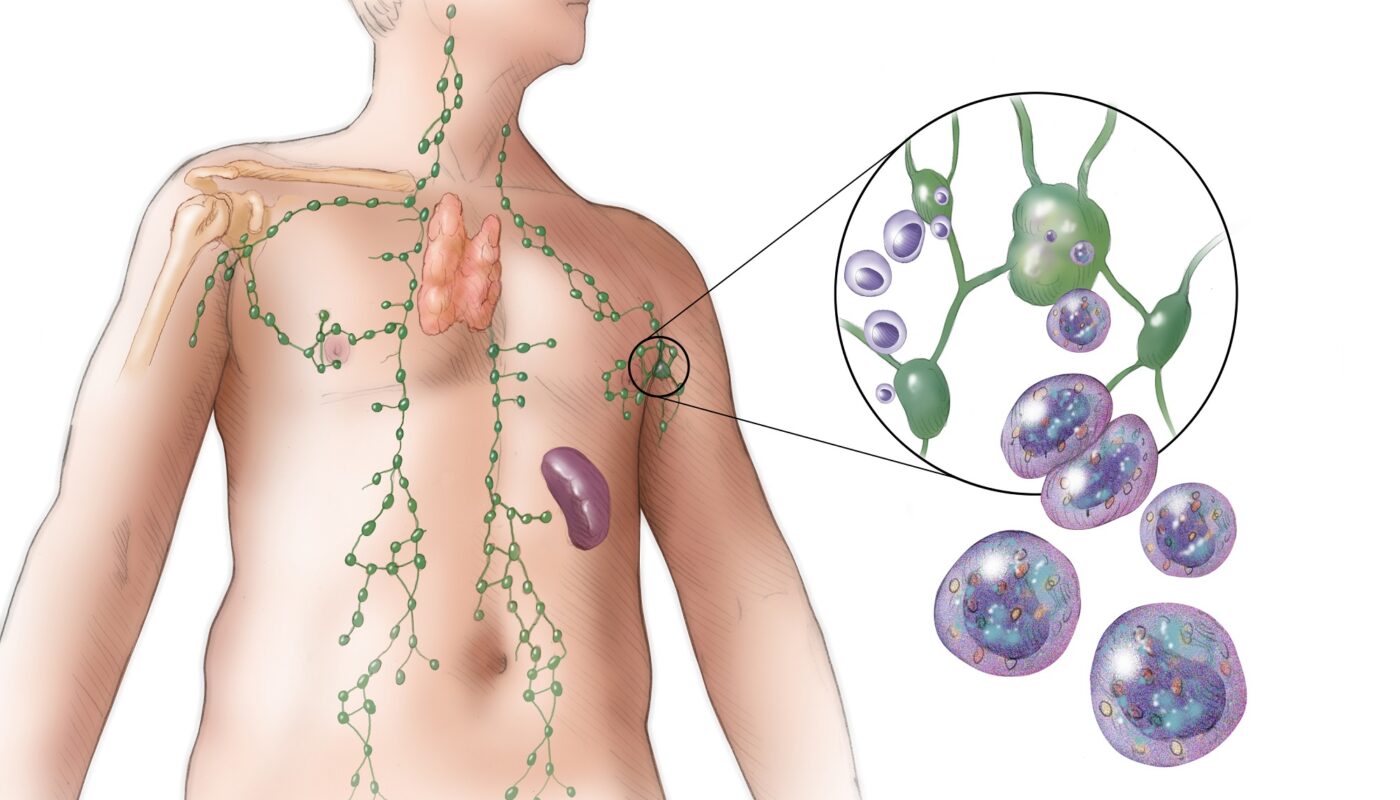T-cell lymphoma is a type of non-Hodgkin lymphoma that arises from mature white blood cells called T lymphocytes, a type of lymphocyte. T lymphocytes play an important role in the immune system by helping the body fight infections and diseases. When T lymphocytes become cancerous and multiply uncontrollably, it can lead to T-cell lymphoma.
Types of T-cell Lymphoma
There are several different types of T-cell lymphoma that are categorized based on the type of T cells that become cancerous. Some of the main types include:
Peripheral T-cell Lymphoma (PTCL)
– PTCL not otherwise specified (PTCL-NOS) – This is the most common type of PTCL and accounts for about 30% of all cases. The T cells do not fit into any of the other defined subtypes.
– Angioimmunoblastic T-cell lymphoma (AITL) – About 20-30% of PTCL cases belong to this subtype. It is associated with a poor prognosis.
– Anaplastic large cell lymphoma (ALCL) – This accounts for about 10-15% of PTCL cases. It can be either ALK-positive or ALK-negative. The ALK-positive subtype has a better prognosis.
Cutaneous T-cell Lymphoma (CTCL)
– Mycosis fungoides – This is the most common type of CTCL, accounting for about 50% of cases. It usually presents with rashes on the skin.
– Sézary syndrome – This more aggressive form of CTCL presents with generalized rashes all over the body along with involvement of lymph nodes and blood.
Other rare types include enteropathy-associated T-cell lymphoma, hepatosplenic T-cell lymphoma, and others.
Establishing the specific T-cell lymphoma subtype is important for determining the appropriate treatment plan and prognosis. Special tests like genetic testing may also be used.
Treatment of T-cell Lymphoma
The treatment approach depends on the specific type and stage of T-cell lymphoma. Some of the main treatment options include:
Chemotherapy
Combination chemotherapy using multiple chemo drug regimens is a common first-line treatment for most types of T-cell lymphoma. The chemo drugs commonly used include CHOP, ESHAP, or CHOPlike regimens.
Immunotherapy
Monoclonal antibody therapies that target molecules on T-Cell Lymphoma cells can be used. Brentuximab vedotin is used for some ALCL subtypes. Others include monoclonal antibodies against CD30.
Stem Cell Transplant
For certain aggressive subtypes, an autologous or allogeneic stem cell transplant after chemotherapy may provide better disease control and outcomes. It is usually reserved for younger patients.
Radiation Therapy
This may be used in combination with other treatments or on its own in early stage or localized disease. It is also helpful for skin-based subtypes.
Targeted Therapy
For certain subtypes like ALK-positive ALCL, targeted drugs against the mutated ALK gene can provide impressive responses. Others include HDAC inhibitors.
Prognosis and Outlook
The prognosis for T-cell lymphoma depends on the specific subtype. Generally, early stage disease confined only to lymph nodes has a better outlook compared to advanced stages with widespread disease. 5-year survival rates range from 30-80% depending on various risk factors. With advances in treatment, the outlook is gradually improving over time. Following treatment closely and monitoring for recurrence also helps catch any issues early. Overall, with prompt treatment tailored to each individual, many patients can achieve remission and long-term disease control.
*Note:
1. Source: Coherent Market Insights, Public sources, Desk research
2. We have leveraged AI tools to mine information and compile it



